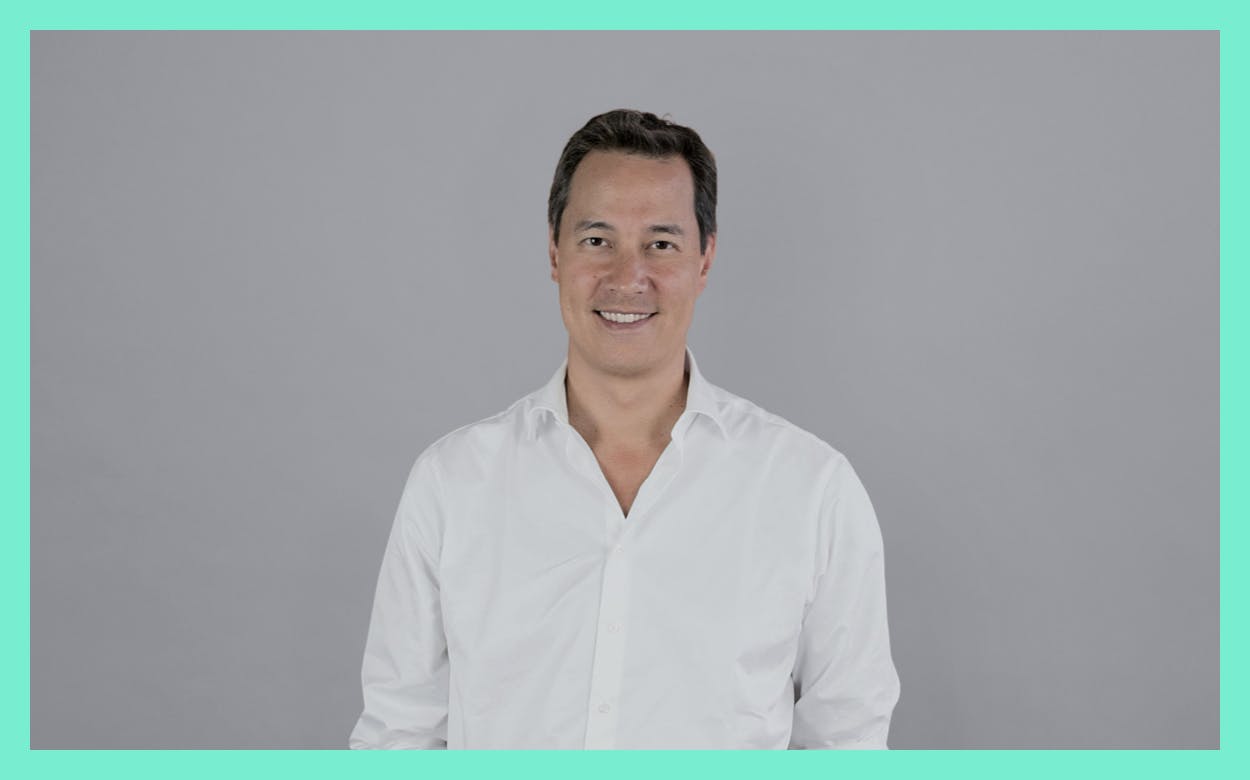Daniel Nathrath (CEO, Ada Health)
Daniel is Chief Executive Officer and co-founder of Ada Health, a global digital health company making personalized health accessible for all. Daniel is a serial entrepreneur with over 20 years’ experience in strategic growth and transformational change. During his career, he has founded several startups around the world and served as general counsel and managing director at tech firms across Denmark, Germany, the US, and the UK. Daniel was a consultant at the Boston Consulting Group and studied law as a Fulbright Scholar at the University of Houston. He holds an MBA from the University of Chicago.

How would you explain to a five-year-old what you are doing?
I help people get healthy and stay healthy just by using their phone. Some people say it is like a doctor for your pocket.
What excites you most about your job?
The feedback from our users motivates me and my team tremendously. Ada is the health assessment app with the most 5-star ratings in the Apple App Store and Google Play Store. But that is only one side. The other side are the real-life experiences and stories that our users share with us. We regularly get messages that our product has helped to speed up a diagnosis for a rare disease, or even saved people's lives because Ada recommended to directly go to the emergency room. That's what really inspires and drives me. The thought of helping people is deeply motivating.
Which trend will change the future of medicine?
I'm obviously biased, but the intelligent application of artificial intelligence in healthcare, in a form that allows end users to use it easily and seamlessly integrate it into their health journey, will change a lot of things. If we can enable people with the help of AI to get a diagnosis faster, regardless of where they live, their status, or their income bracket - if we can help them take the next right step—then we're changing the face of medicine. The fact that we can help anyone with a smartphone in their pocket get a medical assessment comparable to the quality of a good Western doctor is a game-changer. This has the potential to democratize medicine.
Looking back, which trends have you missed or underestimated?
Ada has been around for 10 years now. In the beginning, we conceptualized and built Ada as a decision support tool for doctors. In 2016, we pivoted to making the Ada app available for users and patients. In the early days, I would have liked to integrate services like online booking, telemedicine, or digital therapies. So the hot topics of today's MedTech ecosystem are not really new. But we decided back then to focus on one service, and to provide it with industry-leading medical quality. Looking back, that was a good decision. Other healthtech leaders have done the same. It's great to see what's happened across the board in the digital health ecosystem. And how much willingness there is to collaborate and cooperate with each other to offer people a better service. Looking forward, cooperating between different service providers will be key to offer the most comprehensive user experience and health journey possible.
Which MedTech initiative or startup deserves more attention?
I'm a member and chairman of the Spitzenverband Digitale Gesundheitsversorgung (SVDGV) in Germany, and I'm amazed every day by the number of great companies and startups working on a variety of health-related problems. I can only recommend everyone to take a look at the companies to see how much potential there is in the ecosystem. But if I have to single out one initiative that needs more attention, it is the "1+ Million Genomes" initiative. Their goal is to have at least 1 million sequenced genomes available in the EU by 2022. The project is a good example of how a multi-stakeholder network can strengthen medical development. Ada can also play a role in this process, because genomics can provide a basis to make AI-driven health assessments even more personalized and accurate in the near future.
Where would you put a million dollars?
Idealism drives us. We have launched the Global Health Initiative to accelerate universal health coverage to improve healthcare delivery for those who need it most. With foundations like the Fondation Botnar and the Bill & Melinda Gates Foundation, we try to offer digital health solutions broadly in middle and low-income countries. Why? Because the delta between improvements in medical care and our capabilities is particularly large there. Africa has 10% of the world's population, but only 3% of the world's doctors. In regions where the next doctor is often far away and access to healthcare is poor, digital health solutions can make a difference. And that's why we try to find solutions to offer Ada in these countries through our Global Health Initiative work with local partners on the ground: to improve access to healthcare overall. So, I would pass the million towards improving access to digital health solutions in low- and middle-income countries, as a million can really have a great effect there.
What’s the best advice you’ve ever received?
I used to be a lawyer and a management consultant, and am well aware that I challenged and sometimes even annoyed a lot of people. At some point, I thought: Do something that makes your parents proud. When I was on the verge of getting into the food delivery market, I talked to some very smart people and they said: “Daniel, when you look back at some point in your life, you want to have done something that has made a positive impact on people’s lives.” And this was very wise advice.